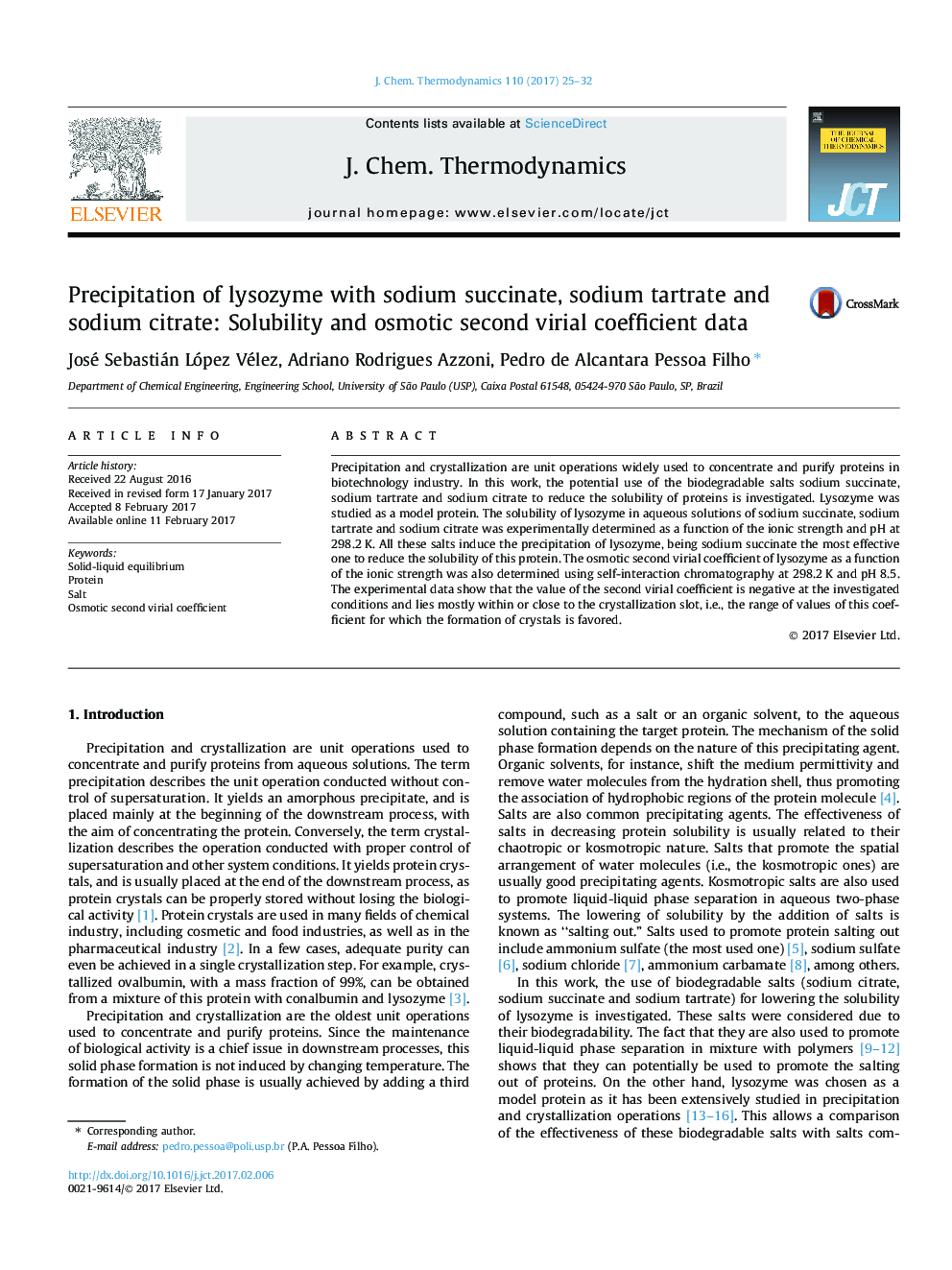| Article ID | Journal | Published Year | Pages | File Type |
|---|---|---|---|---|
| 4769533 | The Journal of Chemical Thermodynamics | 2017 | 8 Pages |
Abstract
Precipitation and crystallization are unit operations widely used to concentrate and purify proteins in biotechnology industry. In this work, the potential use of the biodegradable salts sodium succinate, sodium tartrate and sodium citrate to reduce the solubility of proteins is investigated. Lysozyme was studied as a model protein. The solubility of lysozyme in aqueous solutions of sodium succinate, sodium tartrate and sodium citrate was experimentally determined as a function of the ionic strength and pH at 298.2Â K. All these salts induce the precipitation of lysozyme, being sodium succinate the most effective one to reduce the solubility of this protein. The osmotic second virial coefficient of lysozyme as a function of the ionic strength was also determined using self-interaction chromatography at 298.2Â K and pH 8.5. The experimental data show that the value of the second virial coefficient is negative at the investigated conditions and lies mostly within or close to the crystallization slot, i.e., the range of values of this coefficient for which the formation of crystals is favored.
Related Topics
Physical Sciences and Engineering
Chemical Engineering
Chemical Engineering (General)
Authors
José Sebastián López Vélez, Adriano Rodrigues Azzoni, Pedro de Alcantara Pessoa Filho,
